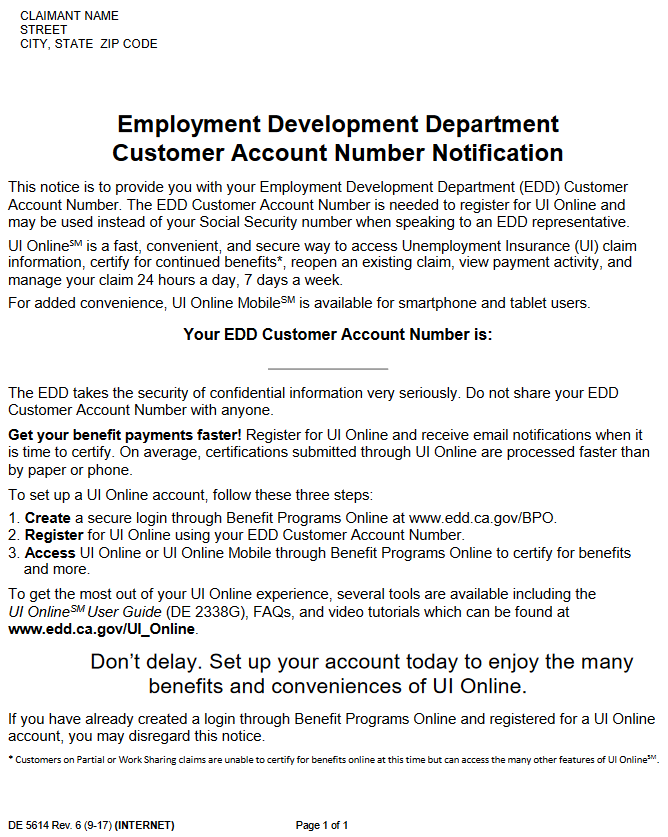The Supreme Court blocked the Trump administration on Thursday from going ahead with its plan…
Un
Supreme Court limits First Amendment rights of US companies’ foreign affiliates

The US Supreme Court ruled 5-3 Monday that requiring foreign groups to have explicit policies opposing prostitution and sex trafficking in order to receive federal funds applies to US companies’ foreign affiliates because they do not possess First Amendment rights. The case, Agency for International Development v. Alliance for Open Society International, Inc., raised the,
The US Supreme Court ruled 5-3 Monday that requiring foreign groups to have explicit policies opposing prostitution and sex trafficking in order to receive federal funds applies to US companies’ foreign affiliates because they do not possess First Amendment rights.
The case, Agency for International Development v. Alliance for Open Society International, Inc., raised the question of whether the federal government violated the First Amendment by prohibiting a US company’s foreign affiliate from receiving federal funding because it had not made an explicit policy statement.
The specific law at issue was the US Leadership Against HIV/AIDS, Tuberculosis, and Malaria Act of 2003, which required that American and foreign organizations have an explicit policy opposing prostitution and sex trafficking in order to receive federal funds.
In 2013, this stipulation, known as the Policy Requirement, was deemed an unconstitutional restraint on free speech when applied to American organizations. But whether it applied to a domestic company’s foreign affiliate was an open question until Monday.
In the opinion of the court, Justice Brett Kavanaugh wrote, “it is long settled as a matter of American constitutional law that foreign citizens outside U.S. territory do not possess rights under the U.S. Constitution,” and “it is long settled as a matter of American corporate law that separately incorporated organizations are separate legal units with distinct legal rights and obligations.” Together, these “two bedrock principles of American constitutional law and American corporate law … lead to a simple conclusion: As foreign organizations operating abroad, plaintiffs’ foreign affiliates possess no rights under the First Amendment.”
In rejecting the second claim, the court stated that this view is incorrect and that the 2013 decision was limited to American organizations.
Chief Justice John Roberts and Justices Clarence Thomas, Samuel Alito, and Neil Gorsuch joined Kavanaugh’s opinion.
Thomas filed a concurring opinion to state that he disagrees with the 2013 decision. In his concurrence, he wrote “[t]he First Amendment does not mandate a viewpoint-neutral government,” so the government may condition funds on an affirmation that each organization can accept or reject.
Justice Stephen Breyer wrote the dissent, which Justices Ruth Bader Ginsberg and Sonia Sotomayor joined. In his dissent, Breyer said that the question at hand is not about foreign entities, but rather US-based entities and their protection under the First Amendment. Breyer’s dissent states that the corporate structure plays little role in an American company’s First Amendment protection. “[O]ur First Amendment precedents leave no doubt that corporate formalities have little to say about the issue now before us. We have made clear again and again (and again) that speech may be attributed across the corporate lines in the First Amendment context—including in our previous opinion in this very case.” In concluding, Breyer wrote,
I fear the Court’s decision will seriously impede the countless American speakers who communicate overseas in a similar way. That weakens the marketplace of ideas at a time when the value of that marketplace for Americans, and for others, reaches well beyond our shores.
Justice Elena Kagan did not take part in the consideration or decision of the case.
The post Supreme Court limits First Amendment rights of US companies’ foreign affiliates appeared first on JURIST – News – Legal News & Commentary.
Source: Supreme Court limits First Amendment rights of US companies’ foreign affiliates
, 
Un
FLAG.DOL.GOV: Essential Resource for PERM Labor Certification Recruitment Compliance
The Foreign Labor Application Gateway (FLAG) at https://flag.dol.gov/ serves as the Department of Labor’s comprehensive digital portal for employers seeking to hire foreign workers through various employment-based immigration programs. For employers navigating the complex PERM Labor Certification process, FLAG has become an indispensable tool that streamlines compliance with recruitment advertising requirements outlined in 20 CFR,
The Foreign Labor Application Gateway (FLAG) at https://flag.dol.gov/ serves as the Department of Labor’s comprehensive digital portal for employers seeking to hire foreign workers through various employment-based immigration programs. For employers navigating the complex PERM Labor Certification process, FLAG has become an indispensable tool that streamlines compliance with recruitment advertising requirements outlined in 20 CFR 656.17.
When conducting PERM recruitment activities, employers must meticulously document their good faith efforts to recruit U.S. workers before hiring foreign talent. FLAG integrates seamlessly with these requirements by providing a centralized platform to submit, track, and manage labor certification applications. The system specifically supports employers in demonstrating compliance with mandatory recruitment steps, including the placement of job orders with State Workforce Agencies, professional journal advertisements, and additional recruitment activities as specified under 20 CFR 656.17(e). By utilizing FLAG, employers can ensure their recruitment efforts align with Department of Labor standards, potentially reducing the risk of audit or denial during the PERM certification process.
PERM Recruitment Requirements and FLAG Integration
FLAG’s role in the PERM process becomes particularly valuable when addressing the specific recruitment documentation requirements of 20 CFR 656.17. The regulation mandates that employers conduct recruitment steps within 180 days of filing, including two Sunday newspaper advertisements, a 30-day job order with the State Workforce Agency, and three additional recruitment activities from a designated list. FLAG not only facilitates the proper filing of these recruitment efforts but also helps employers maintain the required recruitment report detailing lawful job-related reasons for rejecting U.S. applicants.
Recent updates to FLAG have enhanced its functionality for PERM applications, allowing employers to more efficiently upload supporting documentation, track prevailing wage determinations, and monitor case status in real-time. For immigration attorneys and HR professionals managing PERM cases, FLAG’s user interface provides critical visibility into the certification process, helping ensure that all regulatory requirements are met before and during the application period. As labor certification requirements continue to evolve, FLAG remains the authoritative platform for employers seeking to navigate PERM recruitment compliance successfully.
,
Un
THE H1B GUY NEWS (12/3/2021) H1B in Decline and Documented Dreamers in Limbo

The H1B Guy News for the week ending December 3, 2021.
Topics:
H1B in Decline
Documented Dreamers in Limbo
The Number of Immigrant Workers With H1-B Visas Drops the Most in a Decade
https://www.bloomberg.com/news/articl…
Ross, Padilla Lead 49 Colleagues in Urging DHS to Expand DACA Eligibility to Documented Dreamers
https://ross.house.gov/media/press-re…
Read the full post
Subscribe to The H1B Guy Podcast
Join The H1B Guy Channel and Chat on Telegram
Follow The H1B Guy on Twitter
Un
SWA Job Order California: What is an EDD Number?

What is an EDD Number? An EDD Number is technically the state unemployment insurance identification number that the Employment Development Department of California issues a company. Here’s a visual example from the UI Online FAQ: How do I register for an EDD Number? To register for an EDD Number (in California) use this link: https://www.edd.ca.gov/payroll_taxes/e-Services_for_Business.htm,
What is an EDD Number?
An EDD Number is technically the state unemployment insurance identification number that the Employment Development Department of California issues a company.
Here’s a visual example from the UI Online FAQ:
How do I register for an EDD Number?
To register for an EDD Number (in California) use this link: https://www.edd.ca.gov/payroll_taxes/e-Services_for_Business.htm
The EDD Number form will look like this when you receive it. (see below image)
It’s on a form known as DE-5614. Click here for a PDF sample: https://www.edd.ca.gov/pdf_pub_ctr/de5614.pdf
How do I find my company’s EDD Number?
Per the EDD do as follows:
All Unemployment Insurance customers who file a new claim will automatically receive their Employment Development Department (EDD) Customer Account Number (DE 5614) letter within 10 business days of filing.
If you have lost, misplaced, or never received your EDD Customer Account Number, contact the EDD:
Online: Go to Ask EDD and select the category Unemployment Insurance Benefits, the sub category UI Online, and the topic EDD Customer Account Number. Select Continue at the bottom of the page to begin the process of submitting your message.
By Phone: Call 1-800-300-5616 from 8 a.m. to 8 p.m. (Pacific time), seven days a week.
Why do I need an EDD Number for PERM Recruitment?
What else can I use my EDD Number for?
UI Online
Register for UI Online
CalJobs Registration
, 
-

 Un5 years ago
Un5 years agoPERM Process Flow Chart
-

 Enforcement News15 years ago
Enforcement News15 years agoFake ID Makers Arrested In Dallas
-

 BREAKING5 years ago
BREAKING5 years agoPERM Recruitment Advertising, How It Works.
-

 Today's News13 years ago
Today's News13 years agoImmigration: Gangster Tats = Visa Denied
-

 BREAKING5 years ago
BREAKING5 years agoUSCIS Statement Throws Constitution Out the Window
-

 BREAKING3 years ago
BREAKING3 years agoHouse Republicans push asylum restrictions, border security
-

 BREAKING4 years ago
BREAKING4 years agoDeSantis parts with Trump in response to Surfside tragedy
-

 BREAKING3 years ago
BREAKING3 years agoBiden is ignoring immigration issues, voters say in poll





